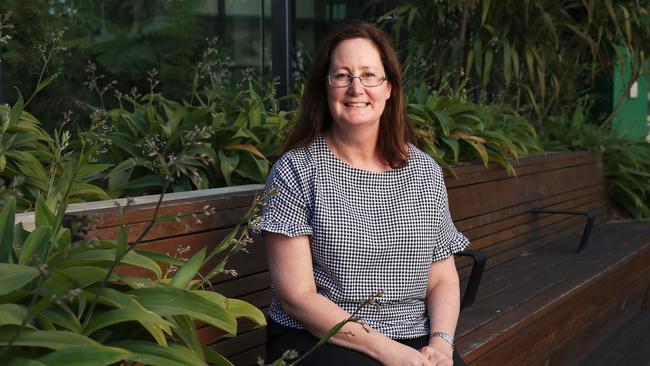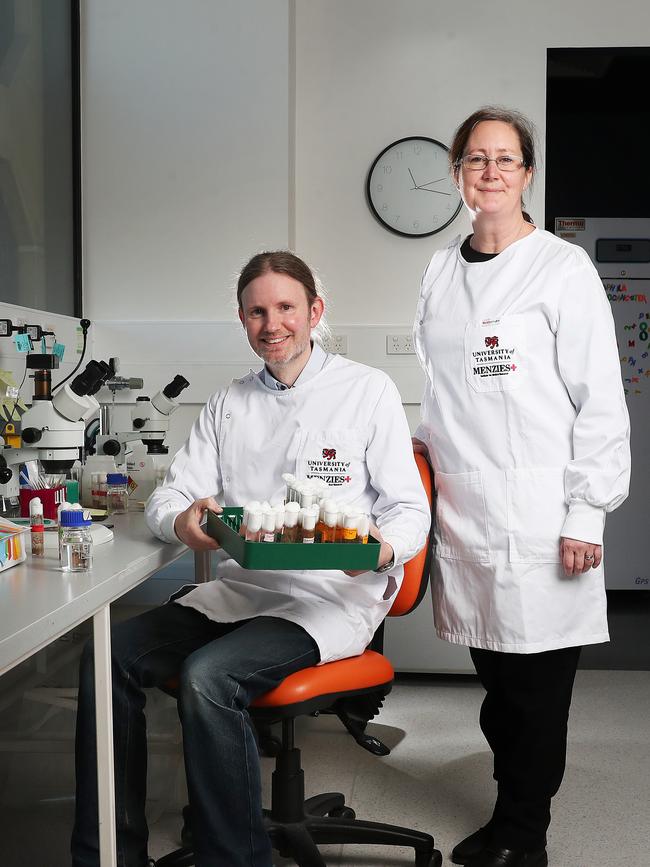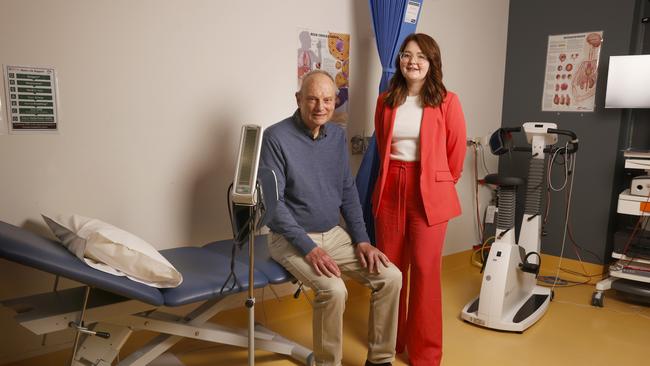Menzies Institute for Medical Research launched a new cardiovascular initiative
Tasmania has the highest prevalence of heart disease and stroke in Australia. Now there’s a new push to get to the heart of the problem. Details.

Tasmania
Don't miss out on the headlines from Tasmania. Followed categories will be added to My News.
With Tasmania having the highest prevalence of heart disease and stroke in Australia, the Menzies Institute for Medical Research has launched a new cardiovascular research flagship to try to tackle the problem.
It will build on the success of the Multiple Sclerosis Research Flagship which has been leading the way in MS research since 2017.
Menzies Institute director, Professor Tracey Dickson, said the flagships’ aim was to work collaboratively with health professionals, policy makers and the community to develop, implement and evaluate interventions to improve the cardiovascular health of Tasmanians.
“There are over 30,000 Tasmanians living with the ongoing effects of heart disease or stroke,” she said.
“We have a 13 per cent higher prevalence of heart disease and a 25 per cent higher prevalence of stroke than the national average.
“Community consultation identified cardiovascular health as a priority for the Tasmanian community and we are recruiting a consumer and community reference committee to educate and guide our research.”

Cardiovascular diseases are those of the heart, brain and vascular system and include stroke and heart disease.
Professor Seana Gall, who will be the academic lead, with Menzies cardiovascular researchers said the two focuses of the flagship would be reducing the risk of the disease for all Tasmanians and improving outcomes for people with the disease.
“We know that we have quite high levels of the risk factors for cardiovascular disease, things like high blood pressure, overweight or smoking,” Prof Gall said.
“It was also chosen because we are responding to an area of need for Tasmania, with cardiovascular diseases a leading cause of death and disability.
“Some of these poorer numbers are due to the fact that we are an older population, with older age being one of the biggest risk factors for cardiovascular disease.
“We also know that it is possible to shift the dial on these things through better prevention efforts and improvements in health care.”

Menzies, she said had consulted with the community and stakeholder about the idea of a cardiovascular flagship.
“They told us that it was needed and should focus on interventions to improve cardiovascular health for all Tasmanians.
“What is also important is that we know we can do something about cardiovascular health.
“It is very preventable, and if people do suffer from a heart attack or stroke, if they get the right treatment at the right time, they can recover well.”
Prof Gall said getting different types of researchers that work in different areas together “will allow us to generate creative solutions to improve cardiovascular health”.
“One exciting aspect of the flagship is that we are going to be using co-design with a community advisory group and a policy and practice group to help us set the priorities and design the research.
“These will work closely with our research leadership team to bring the flagship research to life over the next few years.”
Stroke rehab’s long road never ends: John Steven’s stroke story
When he became unwell while driving from Launceston to Hobart eight years ago John Stevens didn’t realise he was having a stroke.
“I kept looking for the FAST signs but couldn’t detect any,” the 69- year-old who is profoundly deaf says.
His wife took over the driving and when he got home he went to hospital and was admitted to the stroke ward.
“I felt really odd, there is no way to describe it, but I knew something was deeply wrong.
“When you have a stroke part of your brain dies and as a result part of you dies with it, the part that dies may impair you physically, with communication issues, cognitively, emotionally and personality.
“So, I guess what I’m saying is that people never recover fully, it is a work in progress, and you must practise rehabilitation and recovery every day.”

Mr Stevens, who retired as city engineer with the Clarence City Council a year after the stroke, said it affected his left cerebellum which controls movement, balance and fine motor skills and his posture on the right side was affected.
“I still struggle with balance now but to look at me you would be hard pressed to tell I have had a stroke yet alone been left with any lasting effects.”
Mr Stevens has been involved with Menzies for many years and will be the inaugural chair of the Consumer Advisory Committee for the Cardiovascular Research Flagship.
“It is vital the community be involved especially those with lived experience as it complements the knowledge and skills of the health professionals so that we get better outcomes,” he said.
“I think it is fantastic and I am full of praise for the leadership and management team at Menzies for adopting such a collaborative co-design approach
“I think we can all make a difference for the cardiovascular health of Tasmanians.”




